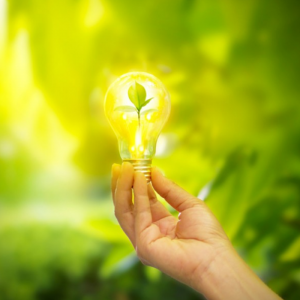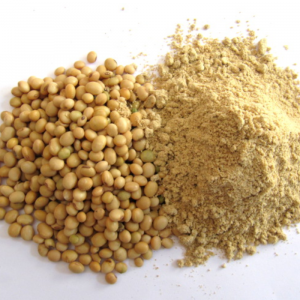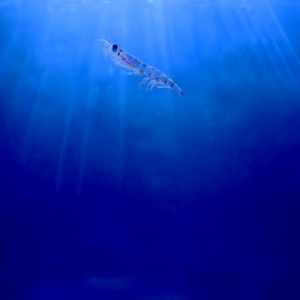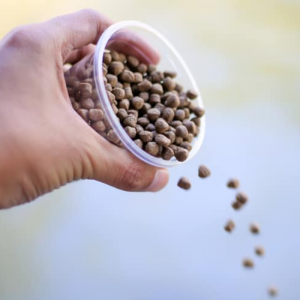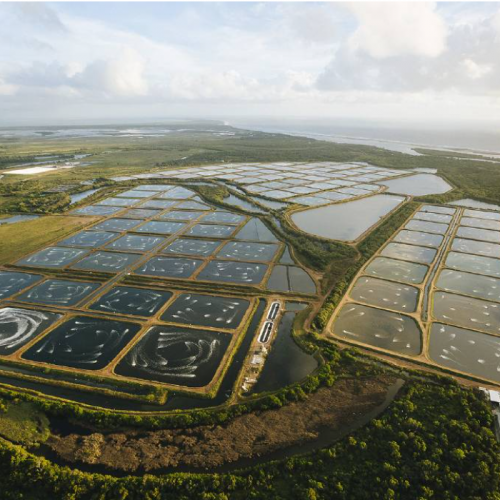
Algae Answer to Aquaculture Wastewater Problem
| Wed, 25 Aug 2021 - 15:53
A prawn farm and greenfield aquaculture site is on the market but behind the simple real estate news is a much bigger story: the use of macro-algae to clean farm and municipal wastewater.
The 331-hectare Pacific Reef Fisheries prawn farm in Ayr, Queensland, has been used to demonstrate a world-first natural water filtration system protecting the Great Barrier Reef. It's paired with a 731ha greenfield aquaculture development precinct in Guthalungra near Bowen, Qld.
Worth an estimated $60 million, the properties are being sold by Pacific Biotechnologies, which developed the filtration system it calls RegenAqua. The technology allowed Guthalungra to become the first fully-permitted greenfield aquaculture precinct in Queensland since 2001, Pacific Biotechnology chief executive Sam Bastounas said.
Water from the prawn ponds is pumped through macro-algae forests, which looks just like seaweed, before being returned to the prawns. The nutrient-rich water makes the macro-algae grow so fast it has to be continually thinned.
Read more: How Artificial Intelligence, Insects and Yeast Can Boost Sustainable Aquaculture
That harvest produces a biostimulant dubbed PlantJuice for local horticultural and sugar cane crops. Other byproducts are used as ingredients in cattle and poultry rations or to build soil carbon. There was also a 10 per cent boost to the health of prawns living in the recirculated water. "We usually get healthier, larger yields out of the bio-remediated ponds," he said.
Macro-algaes strip phosphorous and nitrogen from wastewater but beneficial micronutrients remain.
"We're emulating the natural environment, as opposed to using mechanical equipment or membrane reactors, to take nutrients out of the water and the prawn farm's ecosystem really likes it," he said.
Aquaculture Strategy
Domestic prawn consumption is 64,000 tonnes a year. About 19,000t comes from wild caught fisheries that are capped by quota and 9,000t is farmed. "Almost 60pc of prawns sold in Australia are imported from Asia and elsewhere and we feel that consumers locally and overseas will prefer sustainably-farmed premium Australian seafood that is Reef Safe and ASC certified, which is what the new owner of PRF and the Guthalungra development site will have to build on," Mr Bastounas said.
Read more: Soren Dawody’s Sustainable Aquaculture is Helping Shape Grenada’s Economy
Last year, the Ayr farm produced 1100t of prawns, which were mostly sold to Coles supermarkets. Mr Bastounas said it was a keystone investment in aquaculture. "Sustainable onshore aquaculture is the way to feed the world but as you grow this industry, you have to be mindful of the impact on the oceans," he said.
"All our competitors have basically bought old farms or old agricultural licences. They allow them to discharge but it also restricts growth." Onshore aquaculture with eco-friendly water filtration could see the industry's promise realised.
"It's a powerful enabler for aquaculture to grow in Australia, and that's why billionaires are circling this industry," Mr Bastounas said.
"We're on the market because this business requires the right investor to come in with patient long-term capital, but it is certainly a strategic play for someone who sees what's going on in agriculture."
The ability of Pacific Biotechnology to reach new customers was also a factor. "We want to be able to go to all players in aquaculture and allow them to license RegenAqua technology, clean their water and take nitrogen out and enable industry expansion," Mr Bastounas said.
Read more: Study C’s The Future in Sustainable Aquaculture
"The best way to do that is for us to decouple from the prawn farm."
Human Effluent Fix
It's a powerful sales pitch for the prawn farm and there are hopes the technology will revolutionise much more than aquaculture. Pacific Biotechnology will reinvest the prawn farm proceeds into RegenAqua, which has been under development for a decade but really only commercialised in the last three.
"We think it's a world first, it's been developed in partnership with James Cook Uni for the last 10 years, all designed around solutions for North Queensland and the Great Barrier Reef," Mr Bastounas said.
Mr Bastounas said it can be used for "anything that's producing an organic product", such as aquaculture facilities like salmon farms, abattoirs and even human wastewater.
"What's going on in North Queensland is pretty appalling. There is human effluent going onto the reef as well as prawn and barramundi farm effluent," he said.
Read more: Sustainable Aquaculture to Feed The World
A wastewater treatment trial with the Burdekin Shire Council is underway. Mr Bastounas said it would likely cost $35 million to build a conventional membrane reactor system for a town of 15,000 people but Pacific Biotechnology's solution would be just $6m. "It's a low cost enabler that allows industry up here to grow," he said.
"Anyone reading this will say, 'Well, okay, you're enabling for agriculture'.
"We're enabling the communities of North Queensland to get their sewage treatment stuff done and they can make feed for cattle, put this back into the land as organic material, plant juice from it to support sugar cane and horticulture, reducing the need for traditional NPK fertilisers and getting a better, healthier crop."
Pacific Reef Fisheries will be able to operate the RegenAqua system but intellectual property and licensing rights remain with Pacific Biotechnologies Australia.
Sources: North Queensland Register













